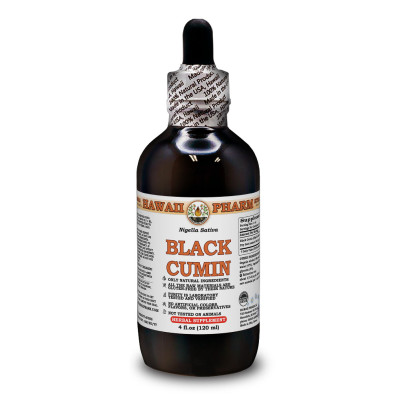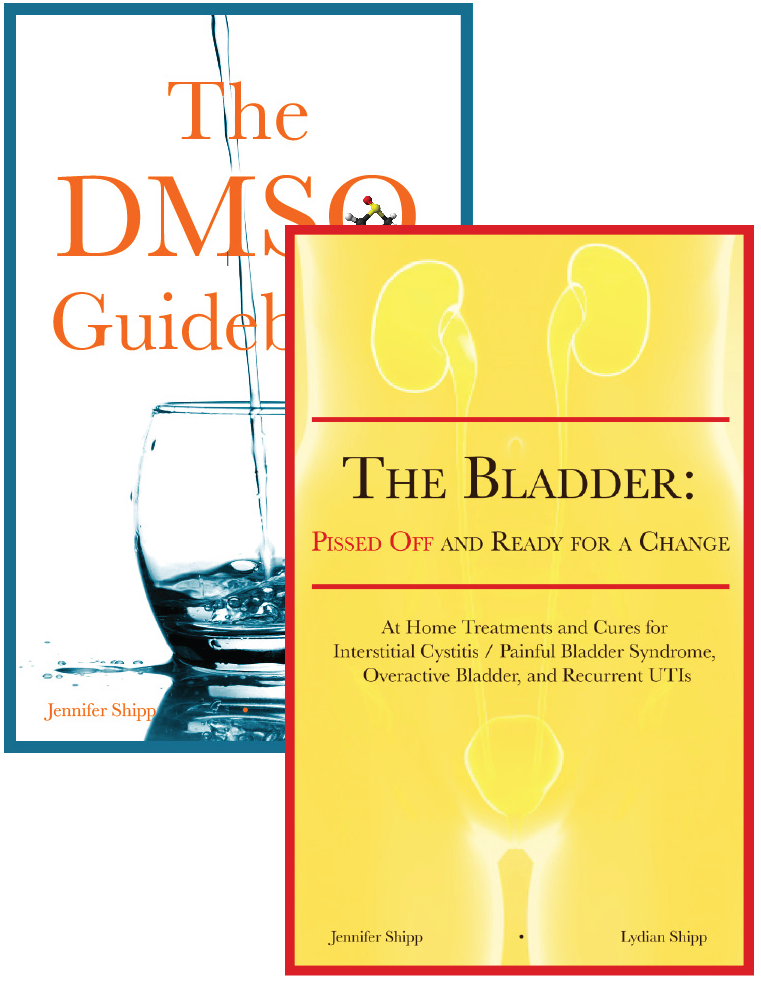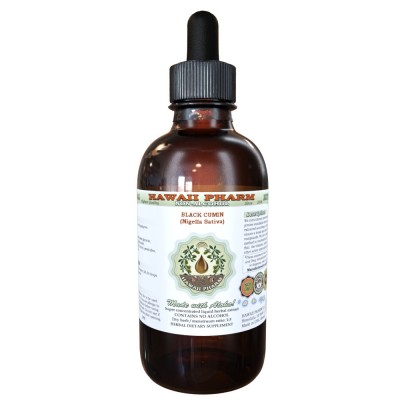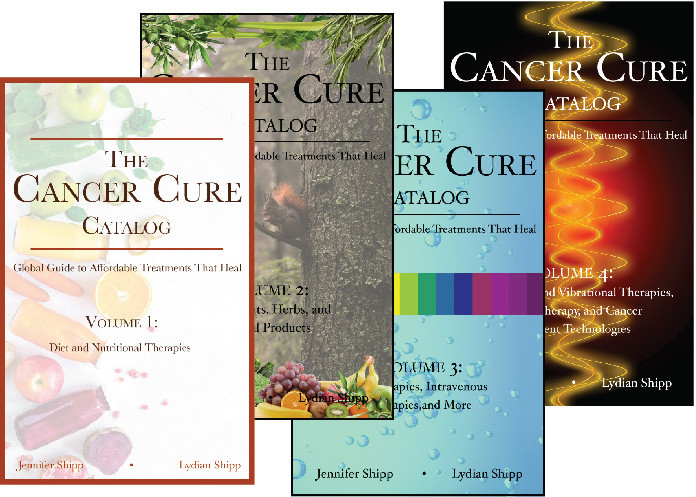Nigella sativa: Traditional Herbal Remedy for Cancer, Diabetes, Infection, and More...
NOTE: The terms “black seed” and “black caraway” may refer either to Nigella sativa OR to an entirely different plant, Elwendia persica. This article focuses on Nigella sativa. If you choose to use this medicine, it’s important to check the ingredients of the product that you’re buying to ensure that it contains Nigella sativa and not Elwendia persica.Nigella sativa has been in use as a traditional medicine for hundreds (perhaps even thousands) of years; it is most commonly known as “black seed” or “black cumin seed”, though other common names include black caraway, Roman coriander, black onion seed, fennel flower, nutmeg flower, kalonji, charnushka, Hak Jung Chou (Chinese), and Siah-Daneh (Farsi).
Nigella sativa has long been a part of the Muslim medicine tradition, and is called Habba Sawda or Habbat al Baraka (“seeds of blessing”) in Arabic. Its use was mentioned in the Prophetic Hadith as a natural remedy for all diseases except death. Similarly in old Latin, the herb was commonly known as Panacea, meaning “cure-all”, thus again suggesting the powerful medicinal properties of Nigella sativa.
Black cumin seed is an important medicine in Unani, Ayurveda, and Traditional Chinese Medicine systems, among many other traditional systems of medicine, especially in Africa and Asia and some parts of Eastern Europe. It is also an important culinary herb. Thymoquinone, a phytochemical constituent found in black cumin seed, is one of the main medicinal components in this herbal remedy, and is found in the highest amounts in Nigella sativa oils (although bee balm / Monarda fistulosa essential oils also have a moderate level of thymoquinone).
Diseases that Nigella Sativa Treats
Black cumin seeds, and especially the oils they contain, have been shown to effectively treat and/or manage the following health problems (among many others not listed here):- Cancer
- Cardiovascular diseases
- Hypertension / High blood pressure
- Atherosclerosis
- High cholesterol
- Diabetes
- Respiratory problems
- Asthma
- Cough
- Bronchitis
- Skin problems (internal and topical applications)
- Blisters
- Eczema
- Rheumatism
- Paralysis
- Inflammation
- Mental debility
- Anorexia
- Amenorrhea
- Kidney disease
- Schistosomiasis
- Hair loss
- Diarrhea
- Acetaminophen-induced hepatotoxicity
- Stomach ulcers
- Arthritis
- Headache
- Fever
- Dizziness
- Influenza
- Back pain
- Nasal abscess (topical application)
- Orchitis (topical application)
- Swollen joints (topical application)
Nigella sativa seeds and oils also have the following effects on the body:
- Analgesic
- Anti-inflammatory
- Antipyretic (they reduce fevers)
- Antimicrobial
- Antineoplastic (they are anticancer/antitumor agents)
- Hepatoprotective
- Antihistaminic
- Antioxidant
- Anti-hypertensive
- They increase respiration
- Antibacterial
- Immunomodulatory
- Neuroprotective
- Cardioprotective
- Antidiabetic
- Gastroprotective
- Nephroprotective
- Antiseptic (external application)
- Local anesthetic (external application)
- Insecticide / Insect repellant
- Antitussive
- Bronchodilatory
- Vasodilatory
Black Cumin Seed Oil as a Cancer Treatment
Multiple studies have found that black cumin seed oil inhibits cancer cell proliferation and provokes apoptosis of cancer cells. Thymoquinone is also known to prevent cancer cell progression and ultimately suppress tumor growth. This important compound found in Nigella sativa seed oil may also help increase levels of quinone reductase and glutathione transferase, two important antioxidant enzymes in the body that are essential for the release and use of various nutrients and other important “building blocks” that can be used for healing cancer. Thymoquininoe may also help increase levels of other important enzymes like glutathione peroxidase, catalase, and superoxide dismutase.One unique way that Nigella sativa seed oil may act as a cancer treatment is through the activation of caspase-3, caspase-8, and caspase-9 in the caspase cascade. The activation of the caspase-8 enzyme is of particular interest, since this leads to the release of cytochrome-C from the mitochondria into cytoplasm. The entire caspase cascade is ultimately related to the modulation of inflammation and cell death throughout the body, which is of course of special relevance in terms of cancer treatment.
The Cancer Cure Catalog, Vol. 1-4, the Complete Set - BUY NOW!
Black cumin seed oil has been studied and found to be effective in treating the following types of cancer (among others not listed here):
- Lung cancer
- NOTE: In the treatment of lung cancer, alpha-hederin may be the main active constituent responsible for healing in black cumin seed oil, rather than thymoquinone, which perhaps plays a secondary role in treating this type of cancer.
- Kidney cancer / Renal cancer
- Liver cancer / Hepatic cancer
- Prostate cancer
- NOTE: Thymoquinone and black cumin seed oil may effectively treat both hormone-sensitive and hormone-refractory prostate cancers.
- Breast cancer
- Cervical cancer
- Blood cancers (including myoblastic leukemia, lymphoma, etc.)
- Skin cancer (including melanoma)
- Colon cancer
- NOTE: As a treatment for colon cancer, thymoquinone has been acknowledged to be a potent anticancer medicine with a similar strength to the chemo drug, 5-fluorouracil, specifically in the treatment of the SW626 colon cancer cell line.
- Pancreatic cancer
- Fibrosarcoma
- Glioblastoma
- Neuroblastoma
 Support our outside vendors - Buy black cumin seed / Nigella sativa extract from Hawaii Pharm here.
Support our outside vendors - Buy black cumin seed / Nigella sativa extract from Hawaii Pharm here.
Black Cumin Seed Oil for Diabetes
As a treatment for diabetes, the seed oils of Nigella sativa have been found to decrease morphological changes in the pancreas and to preserve the integrity and health of pancreatic beta-cells. Black cumin seed oil may also work as a diabetes treatment by promoting healthy antioxidant enzymatic activity in the liver. In the liver, gallbladder, pancreas, and beyond, black cumin seed oil also works to treat diabetes (and other serious diseases) by enhancing tissue regeneration and working to heal wounds and damaged tissues.In an animal model of diabetes in which diabetes was induced in rats using streptozotocin, black cumin seed oil was found to be powerfully antioxidant. It also reduced the levels of malondialdehyde (MDA) in tissues while subsequently increasing levels of superoxide dismutase (SOD). Other animal studies suggest that black cumin seed oil acts to treat diabetes by regulating blood lipid levels and relieving endothelial dysfunction.
One clinical trial on patients with diabetic nephropathy and chronic kidney disease found that the administration of black seed oil effectively reduced levels of blood glucose, serum creatinine, blood urea, and 24-hour total urinary protein. The black seed oil also led to increased glomerular filtration rates, higher 24-hour total urinary volume, and increased hemoglobin levels.
Other research has found that black cumin seed oil can perform the following actions in the body related to the treatment of diabetes:
- Reduces glucose levels
- Increases the amount and diameter of Islets of Langerhans cells in the pancreas
- Decreases levels of LDL cholesterol and increases HDL cholesterol levels
- Increase levels of insulin-like growth factor-1
- Increases insulin levels
- Increases glomerular filtration rate
- Decreases myositis / muscular degeneration, hyaline degeneration, and Zenker’s necrosis
- Decreases albuminuria

Black Cumin Seed Oil for Asthma
Nigella sativa seed oil has antihistamine action in the body, including in the airways, which may ultimately be responsible for its healing effects in the treatment of asthma. Other medicinal properties of black cumin seed oil that may contribute to its therapeutic effects in the treatment of asthma include this plant’s bronchodilatory, anti-inflammatory, antileukotriene, antifibrotic, and immunomodulatory effects in the body.One human study on patients with asthma found that the administration of 1-2 grams of Nigella sativa seed oil per day for 3 months increased the patients’ peak expiratory flow by 25-75%. In breath tests, this medicine also helped improve serum IgE and fractional exhaled nitric oxide. IFN-gamma levels were increased, and the patients who received black cumin seed oil also scored better on asthma control tests.
Another study found that patients with asthma who took Nigella sativa seed oil capsules at a dose of 500mg twice per day for 4 weeks had improved asthma control and overall improved pulmonary function. Blood eosinophils were also decreased in the individuals who took black cumin seed oil, in comparison to those who received a placebo.
Other research has discovered that nigellone, a carbonyl polymer of thymoquinone, can act to prevent asthma, asthma attacks, and bronchitis, especially in children. Nigellone is thought to work by inhibiting histamine release from mast cells. Black cumin seed oil is also particularly valuable for reducing wheezing in lower respiratory tract infection in children. It is bronchodilatory and improves overall pulmonary function and airway conductance not only in cases of asthma, but also in other cases of chronic and infectious respiratory health problems.
Muscarinic Receptor Activity of Nigella sativa
Black cumin seed interacts with the muscarinic receptors in the body, and is an anticholinergic plant medicine, specifically when the seeds are administered in extract form. Studies have found that black cumin seed extract acts as a muscarinic receptor antagonist, while other research indicates that a-pinene, a compound in Nigella sativa seed oil, may also be responsible for this plant’s anticholinergic effects. Carvacrol, a different compound in black cumin seed oil, also has antimuscarinic effects, specifically in the muscarinic receptors of the tracheal smooth muscles. As a muscarinic receptor antagonist, black cumin seed can act as a relaxant, specifically for the respiratory tract, which may thus explain its positive effects in the treatment of asthma and other respiratory problems.Organophosphates are toxic chemicals that are practically ubiquitous in the modern world today and organophosphates interact with muscarinic receptors. Specifically, organophosphates are stored in the bones and teeth (when people are vitamin K2 deficient) and then they are released by the bone tissues and at that time, they can lodge themselves in the muscarinic receptors to disrupt the cholinergic nervous system. This causes serious health problems that mimic chronic diseases like autoimmunity, long COVID, dementia, neurological issues, mood problems like depression, and the symptoms of muscarinic over-activation. Nigella sativa is one of a number of natural medicines that can be used to remove organophosphates from the muscarinic receptors. Amanita muscaria (a mushroom) is another natural medicine that is microdosed to remove muscarine-receptor toxins from the body.
Black Cumin Seed Oil for Kidney Disease
Black cumin seed oil helps prevent and treat kidney disease and other kidney-related problems by treating renal dysfunction and morphological abnormalities in the kidneys and urinary tract. It is a valuable complementary treatment for patients with chronic kidney disease (CKD) and diabetic nephropathy. Black cumin seed oil also helps protect kidney tissues from the effects of harmful free radicals, and acts to treat nephrolithiasis / kidney stones and other types of kidney damage, including unilateral ureteral obstruction-induced kidney damage.Black cumin seed oil is especially effective as a treatment for kidney damage caused by exposure to toxins like pesticides, chemicals, pharmaceutical drugs (such as aspirin, paracetamol, acetylsalicylic acid, penconazole, and haloperidol), and heavy metals. It acts to protect the body from exposure to these toxins by preventing lipid peroxidation and enhancing antioxidant enzyme activity in kidney tissues. Nigella sativa seed oil also protects the body from exposure to arsenic, cadmium, and sodium nitrite by reducing oxidative damage and inflammation and preventing apoptosis of healthy cells.
 The Bladder: Pissed Off and Ready for a Change + The DMSO Guidebook: BUY HERE!
The Bladder: Pissed Off and Ready for a Change + The DMSO Guidebook: BUY HERE!
Black Cumin Seed Oil for Gastrointestinal Ulcers and Other Gastrointestinal Problems
Nigella sativa seed oil has been found to be effective as a treatment for stomach ulcers in particular, but as a gastroprotective agent, this herbal medicine is valuable for treating ulcerations throughout the digestive tract. For this purpose, black cumin seed oil is thought to work by increasing gastric glutathione levels, as well as the activity of superoxide dismutase and GST. Its antioxidant and antihistaminic activity also play a role in treating GI ulcers. The activity of the rhamnogalacturonan-I type pectic polysaccharide found in Nigella sativa seeds also helps support the healing of gastric ulcers by modulating signaling pathways that manage the aggravation or healing of ulcers in the GI tract.Thymoquinone, the main therapeutic constituent in black cumin seed oil, is also known for its ability to reduce the acidity of gastric secretions. This action is thought to not only help treat peptic ulcers, but may also help treat other gastrointestinal problems like dyspepsia, gastritis, and GERD.
Black cumin seed oil also may help treat H. pylori, a common bacterial infection found in up to 50% of the population that frequently causes gastric ulcers. One study found that the administration of Nigella sativa combined with raw honey was able to reduce dyspepsia symptoms in patients with H. pylori infection, and also led to negative urea breath test results (this is a test used to diagnose H. pylori). In this study, 19 patients with H. pylori infection were given 6 grams of ground black cumin seed combined with 12 grams of honey, 3 times per day after meals, for 2 weeks.
Another study found that the administration of 2 grams of Nigella sativa seed powder effectively reduced stool frequency in patients with ulcerative colitis.
Chemoprotective and Radioprotective Effects of Black Seed Oil
Patients who are receiving chemotherapy treatments for cancer often experience negative gastrointestinal symptoms. Nigella sativa seed oil administered at a dose of 2mL per kilogram of body weight has been found to effectively prevent the symptoms of gastrointestinal dysfunction caused specifically by the chemotherapy drug, cisplatin. Thus, this medicine may be appealing to cancer patients who want to combine conventional cancer treatments like chemotherapy with more natural healing methods, since black seed oil not only treats cancer directly on its own, but also relieves and prevents some of the damaging side effects caused by chemo and radiation.Renal damage and damage to other parts of the urinary tract system are also common with chemotherapy treatments, especially when the patient is given drugs like methotrexate and cisplatin. Black cumin seed oil, however, has been found to ameliorate this damage when administered concurrently with these chemotherapy drugs.
Black cumin seed oil may also help prevent and reverse severe damage caused by radiation treatments for cancer. Research has found that oral administration of Nigella sativa seed oil before radiation treatments effectively normalized problems caused by radiation; it prevented a reduction in hemolysin antibodies, delayed type hypersensitivity reaction, leukopenia, decreases in total plasma protein and globulin concentrations, and depletion of lymphoid follicles in the spleen and thymus gland. Black cumin seed oil also effectively prevented an increase in malondialdehyde levels, and encouraged normal or high levels of antioxidant enzymes like glutathione peroxidase, catalase, and erythrocyte superoxide dismutase. It also was actually able to regenerate lymphoid follicles in the spleen and thymus gland, indicating that this seed oil may also help treat the effects of radiotherapy after treatment.
Black Cumin Seed Oil for Reproductive Health and Infertility
Multiple studies suggest that black cumin seed oil and thymoquinone possess powerful benefits in treating problems that have to do with the reproductive organs and reproductive health in both men and women.In a study done on rats, oral administration of black cumin seed oil for 45 days was found to significantly improve spermatogenesis, semen parameters, and seminal vesicle development. The same study found that, following administration of acetamiprid, a neonicotinoid chemical, Nigella sativa seed oil effectively prevented the toxic effects of this chemical on the male reproductive organs. Specifically, it prevented alterations to testicular weight gain, decreases in semen quality, and decreases in serum testosterone levels that are seen following exposure to acetamiprid and other neonicotinoids.
A human study done in Iran found that the administration of black cumin seed oil to infertile men had similarly positive results. In this study, Nigella sativa seed oil significantly improved semen quality (including volume and pH) and spermatozoa functional parameters like sperm concentration, mobility, and motility when compared with placebo.
In women, black cumin seed oil is similarly beneficial for reproductive health throughout life. An Iranian study found that perimenopausal women who were given 1600mg of Nigella sativa seed oil daily for 12 weeks experienced a significant reduction in the prevalence and severity of menopausal symptoms. The same study observed that the women who received black cumin seed oil experienced improved perimenopausal weight gain, and improved levels of circulating lipids, glucose, and hormones.
Nigella sativa seed oil may also be a helpful medicine for the treatment of polycystic ovarian syndrome (PCOS). One animal study on rats found that the injection of thymoquinone directly into polycystic ovaries led to a dramatic recovery in ovarian function. In the rats that received thymoquinone injections, ovarian cyst formation was reduced, ovulation rate increased, and general ovarian function was increased. Levels of various reproductive hormones, including estrogen, luteinizing hormone, thyroxine, triiodothyronine, and thyroid-stimulating hormone were also improved following treatment with Nigella sativa seed oil.
Black cumin seed oil may also be especially helpful for pain relief in the postpartum period. One study found that the administration of black cumin seed oil at a dose of 500mg combined with mefenamic acid (250mg) was significantly more effective in reducing pain in the 2 hours following delivery than mefenamic acid alone. In addition, Nigella sativa is also a galactagogue, so it is an especially good choice for women who are planning to breastfeed.
 The Natural Couple's Guide to Fertility BOOK BUNDLE - Buy here!
The Natural Couple's Guide to Fertility BOOK BUNDLE - Buy here!
Medicinal Compounds in Black Cumin Seed Oil
Thymoquinone is the main medicinal compound in black cumin seed oil, but is still only one of many medicinal constituents found in this medicine. While it’s possible to get concentrated, extracted thymoquinone oil, we generally recommend using the whole plant oil since the various compounds in black seed oil all work together to produce this medicine’s healing effects.Thymoquinone Oil
Experts believe that the Nigella sativa seeds and the thymoquinone oil that the seeds contain work as antioxidants in the body and boost the body’s immune system, though the exact mechanism of action of this plant is not well understood. The Nigella sativa oil is nevertheless known to be able to induce apoptosis in cancer cells.Other Constituents in Black Seed Oil
In addition to the aromatic thymoquinone, black cumin seed oil also contains linoleic acid, oleic acid, palmitic acid, and trans-anthenole, which together make up 32-40% of the oil. Below is a list of some of the other medicinal compounds found in black cumin seed oil:- Carvacrol
- Alpha-thujene
- Thymol
- Alpha-pinene
- Beta-pinene
- Alpha-hederin
- p-Cymene
- Dihydrothymoquinone
- Nigellicine
- Nigellidine
- Nigellimine
- Nigellicine
- Isoquinolines
- Nigellimine N-oxide
- Terpineol
- Limonene
- Carvone
- Longifolene
- Amino acids / proteins
- Arginine
- Glutamine
- Leucine
- Lysine
- Methionine
- Tyrosine
- Proline
- Threonine
- Vitamins
- Tocopherols (vitamin E)
- Minerals
- Iron
- Sodium
- Copper
- Zinc
- Potassium
- Calcium
How to Use Black Cumin Seed Oil
Black cumin seed oil is the most commonly used medicinal form of Nigella sativa. Some people also choose to prepare a tea with the whole seeds, but it’s widely agreed that the oil of Nigella sativa is the most therapeutic. It can be taken internally or applied externally (or both) depending on the patient’s individual needs and specific situation. Follow the dosing guidelines below:- Black Cumin Seed Oil Capsules - Take between 300-1000mg, up to 3 times per day. Start with a lower dose and work your way up, since some people are particularly sensitive to black cumin seed oil.
- Whole Black Cumin Seeds - These can be taken mixed with honey or prepared as a tea. Take up to 1 teaspoon of these per day.
- Ground Black Cumin Seeds / Black Cumin Seed Powder - Take up to 1-2 grams (1000-2000mg) of powder daily. This is equivalent to about ¼ teaspoon.
- Black Cumin Seed Oil - Take between 1-3 teaspoons of oil per day. This can be taken straight off the spoon, or mixed into a salad dressing, for example (do not cook/heat this oil, though, and use it in moderation). Many people enjoy mixing black cumin seed oil with some raw honey and warm milk.
Note that although there are some extracts and tinctures available on the market, these often aren’t as potent as the above methods of administration of black cumin seed. There are some studies that suggest that these extracts may still provide medicinal benefit, but the main medicinal compounds of Nigella sativa are found in the seed oils, so ideally, the whole seed or the oil of the seed itself should be the main parts consumed to derive maximum health benefits.
Black Cumin Safety and Side Effects
Nigella sativa seeds have a very low toxicity, and most people experience no side effects when taking this herbal medicine. However, some people, such as patients with functional dyspepsia, may experience symptoms like nausea, bloating, or a burning sensation in the GI tract, or have a slight increase in liver and kidney enzymatic markers when taking black cumin seed powder. These symptoms go away when the person stops taking the Nigella sativa; note that other forms of administration, such as only black seed oil taken internally or even applied externally, may not produce the same effects.

Related Links: Resources [1] Khan, M. A., Chen, H., Tania, M., Zhang, D. (2011). Anticancer Activities of Nigella Sativa (Black Cumin). Retrieved June 5, 2018 from https://www.ncbi.nlm.nih.gov/pmc/articles/PMC3252704/ [2] Ali, B. H., Blunden, G. (2003). Pharmacological and toxicological properties of Nigella sativa. Retrieved June 5, 2018 from https://www.ncbi.nlm.nih.gov/pubmed/12722128/ [3] Ijaz, H., Tulain, U. R., Quereshi, J. Danish, Z., Musayab, S., Akhtar, M. F., Saleem, A., Khan, K. K., Zaman, M., Waheed, I., Khan, I., Abdel-Daim, M. (2017). Review: Nigella Sativa (Prophetic Medicine): A Review. Retrieved June 5, 2018 from https://www.ncbi.nlm.nih.gov/pubmed/28603137 Wikipedia (2024). Nigella sativa. Retrieved January 11, 2025 from: https://en.wikipedia.org/wiki/Nigella_sativa Hannan, Md Abdul, et. al. (2021). Black Cumin (Nigella sativa L.): A Comprehensive Review on Phytochemistry, Health Benefits, Molecular Pharmacology, and Safety. Retrieved January 13, 2025 from: https://pmc.ncbi.nlm.nih.gov/articles/PMC8225153/#abstract1 Khader, Mohannad, et. al. (2014). Thymoquinone: an emerging natural drug with a wide range of medical applications. Retrieved January 13, 2025 from: https://pmc.ncbi.nlm.nih.gov/articles/PMC4387230/ Khan, Asaduzzaman, et. al. (2011). Anticancer Activies of Nigella Sativa (Black Cumin). Retrieved January 16, 2025 from: https://pmc.ncbi.nlm.nih.gov/articles/PMC4387230/ Levy, Jillian (2021). What Are Nigella Seeds? Top 5 Benefits + How to Use. Retrieved January 16, 2025 from: https://pmc.ncbi.nlm.nih.gov/articles/PMC4387230/ Keyhanmanesh, Rana, et. al. (2014). The relaxant effect of Nigella sativa on smooth muscles, its possible mechanisms and clinical applications. Retrieved January 17, 2025 from: https://pmc.ncbi.nlm.nih.gov/articles/PMC4387229/














